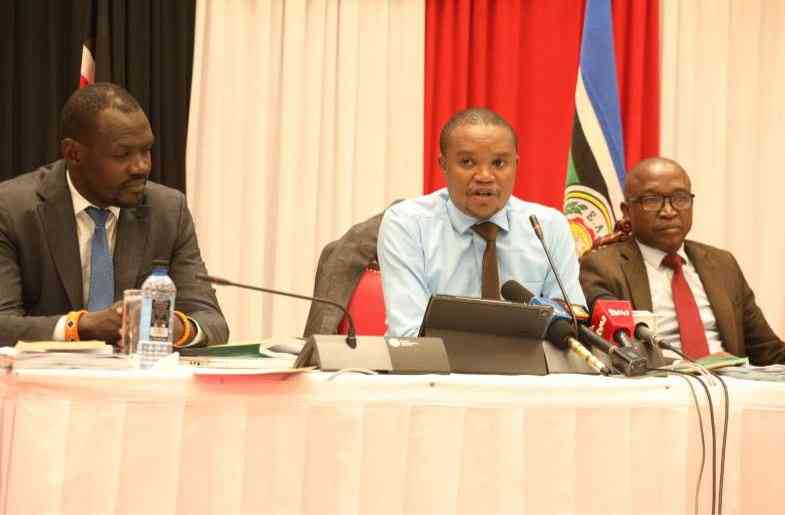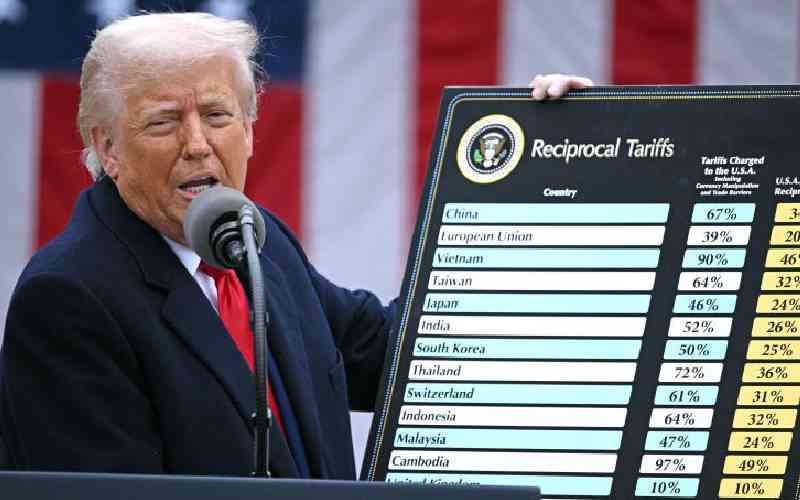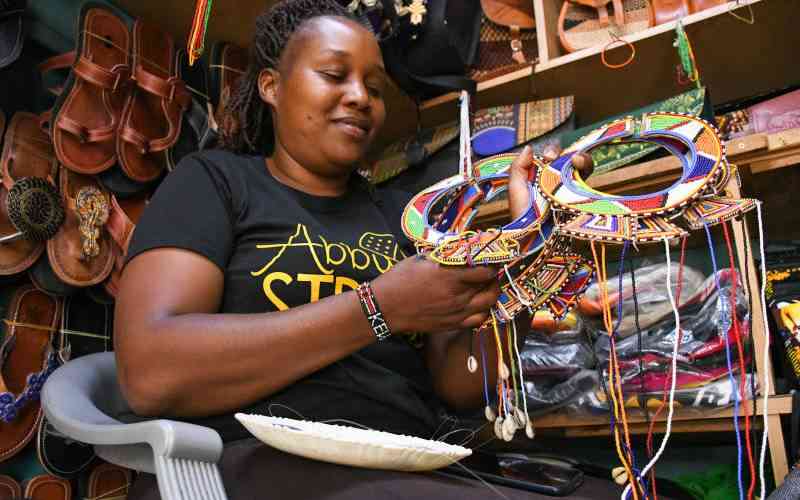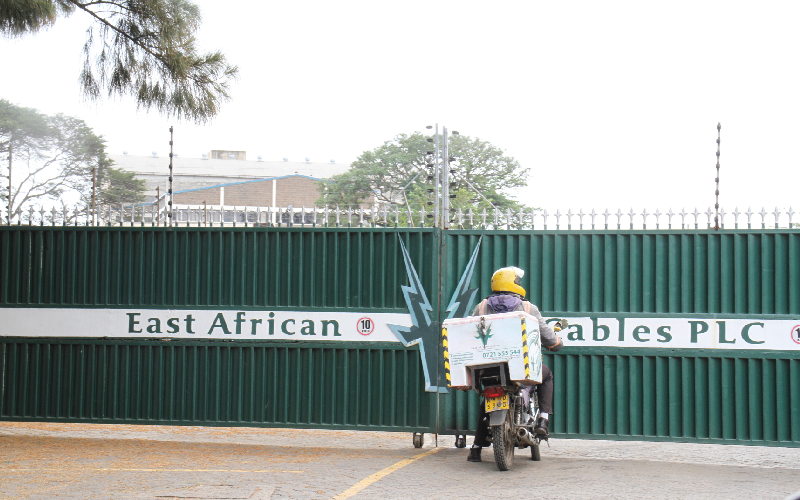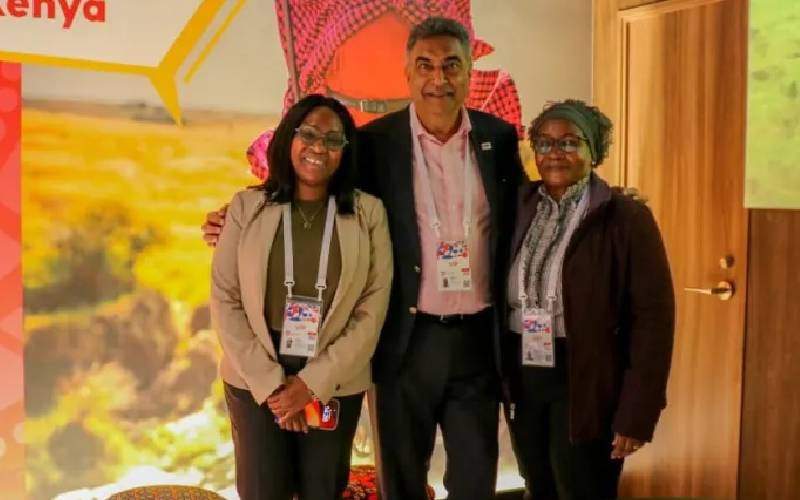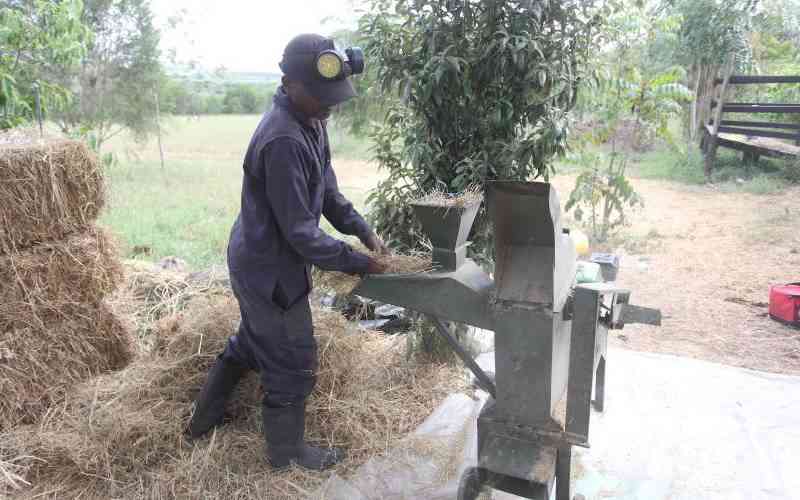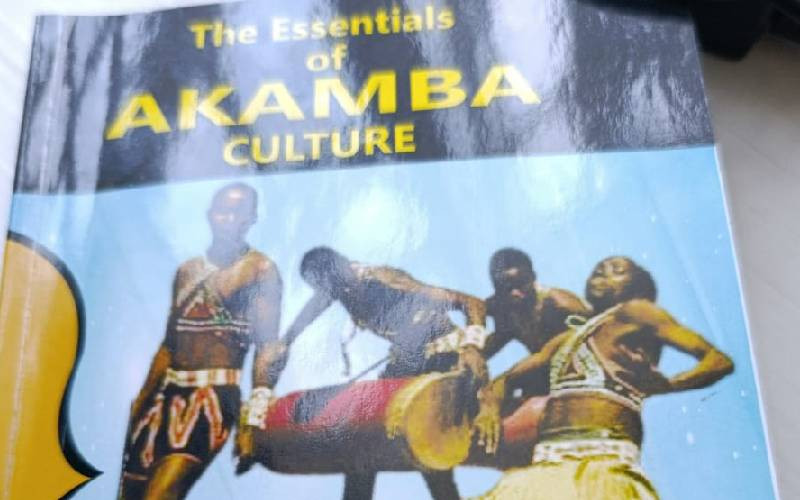
A book featuring the tradition and culture of the Akamba people was launched on Friday in Machakos with a rallying call for the community to safeguard positive cultural values and practices.
Felix Kyengo, a distinguished accountant who previously worked with PriceWaterhouseCoopers before moving to Multichoice Kenya where he retired, unveiled his book titled ‘Essentials of Akamba Culture’ during cultural week celebrations mounted by Uwezo College, an institution he established.
The 203-page publication candidly paints a clear picture of the Akamba people-ranging from the myths of their origin, their historical migratory path as well as their tradition and culture, which the author has urged the community to preserve.
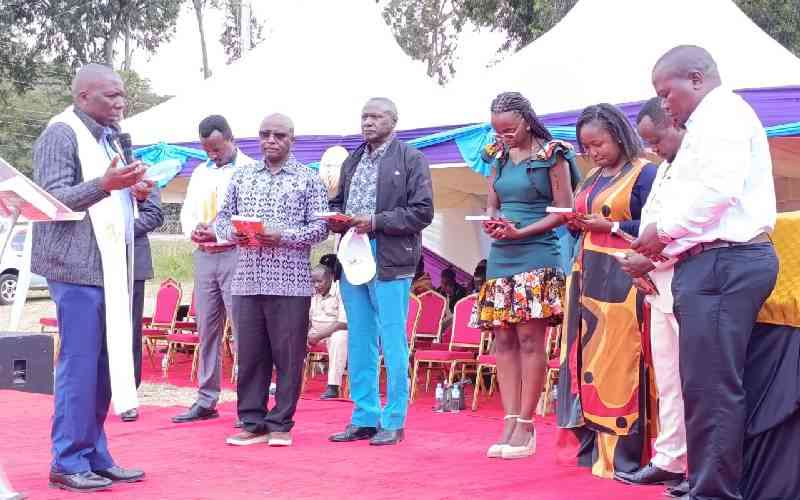
Addressing the public during the book launch, Kyengo said the book was motivated by the need to demystify culture, either in the old, modernized or altered fashion covering aspects such as the way the ethnic community brings up their children and how they react to issues.
“Western culture has drowned African culture and even in some situations, African culture has been regarded as backward. This book is primarily aimed at equipping our people with the essentials of Akamba culture in a broad sense,” the author said.
Kyengo cautioned that the interest in learning one’s culture should not be viewed as a deviation from the path of modernization. “Self-respecting people around the world value their culture and therefore will resist the attempts to demean or downplay it,” he said.
The book outlines the geographical distribution of the Akamba community, referencing the national census data and goes ahead to reveal the community’s presence in the diaspora including Uganda, Tanzania, Eastern Congo, Malawi, Zimbabwe and South Africa.
The book further documents the existence of Akamba people in Paraguay. “The Akamba people in Paraguay form two groups namely the Akamba Cua and the Akamba Kokue with the former being the most famous,” reads part of the book.
Common clans of the community and their respective attributes have also been discussed, including the roles and functions of clans.
And to the lovers of entertainment, the book narrates the rich scope of Akamba recreational activities including music and cultural ceremonies such as weddings, alcoholic drinks and creative arts.
The author further delves into the aspect of the Akamba community’s practice of medicine and social welfare, tackling common diseases and illnesses, superstitions and witchcraft. Matters of spirituality and the belief in life after death have also been captured.
The book has been edited and reviewed by some of the country’s revered authorities including Prof Kithaka wa Mbaria, a don at the University of Nairobi, the legendary Prof David Mailu who has authored over 80 books, Angeline Nduku a linguistics Professor at the United States International University as well as academician Dr Steve Wambua.
